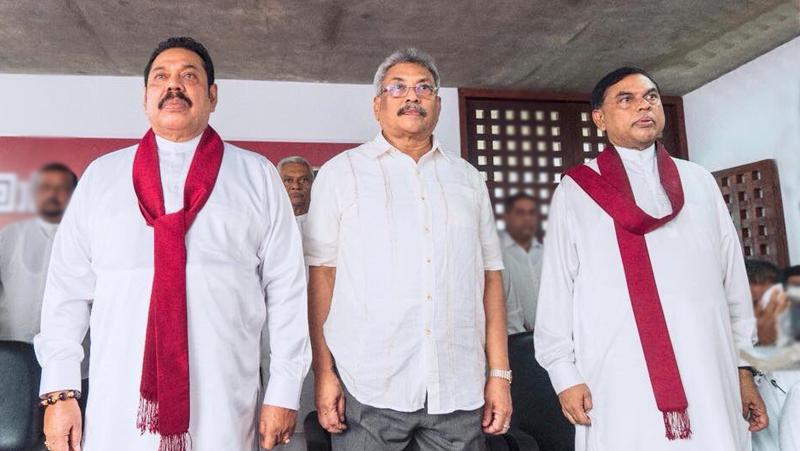
Writing in Foreign Policy magazine, Professor Neil DeVotta warns of “Rajapaksa rule well into the future” and possible anti-Muslim pogroms “in the days ahead unless the international community bands together to protect them”.
Calling Sri Lanka’s recently elected prime minister Mahinda Rajapaksa and president Gotabaya Rajapaksa “Sinhalese Buddhist supremacists”, DeVotta states that under their previous tenure “radical Sinhalese Buddhist nationalists enjoyed free rein to inveigh against minorities, with Muslims especially targeted following the end of the civil war”.
Militarisation
Referring to the increased militarisation of the North and East since the end of the armed conflict, DeVotta writes:
“In many ways, the military crept into civilian politics even more during the pandemic. Gotabaya Rajapaksa has appointed retired and serving military personnel to powerful government positions, with the army commander (and not a public health official) put in charge of the task force dealing with COVID-19. Many of these officials also stand accused of committing war crimes during the civil war.”
“In June the president set up a “Presidential Task Force to build a Secure Country, Disciplined, Virtuous and Lawful Society” whose members comprise of intelligence, military, and police officials. Its authorities are so wide-ranging that this task force could easily usurp the functions of civilian officials,” he added.
Religious hostility
“Buddhist nationalists...fear that Wahhabi-Salafi influence spreading within the community is transforming Sri Lanka’s identity,” DeVotta writes, drawing attention to the scourge of Islamophobia that has taken root in the country thanks to Sinhala-supremacists.
“Their shrill rhetoric during the election, combined with vile postings on social media, hint of forthcoming unrest. The island’s Muslims could well endure pogroms in the days ahead unless the international community bands together to protect them.”
“The government tried to blame Muslims for spreading COVID-19 in the island, as a few from the community were among the first to contract the virus. This took place even as Muslims thought to have died from COVID-19 were forcibly cremated, a practice that goes against Islamic beliefs and World Health Organization recommendations.’”
Colonisation of Tamil homeland
Such a minatory prognosis is all the more troubling given the rise in Sinhalese colonisation of the Tamil homeland in the North-East. “Many Sinhalese Buddhist nationalists want to eventually see the Northern and Eastern Provinces become Buddhist-majority areas, and it appears the stage is set for a policy of ethnic flooding similar to what has taken place in China’s Tibet and Xinjiang regions,” he states.
The bigotry of the Sinhala-Buddhist chauvinists and their desire to homogenize the island is exemplified by their aspiration to eliminate Tamil history. DeVotta says,
“Consider that, in June, Gotabaya Rajapaksa created the Presidential Task Force for Archaeological Heritage Management in the Eastern Province, which does not include a single Tamil or Muslim despite both groups combining to form a majority in the region. A retired general who is secretary to the ministry of defense and is accused of committing war crimes leads the task force, which includes Buddhist monks and individuals eager to promote Sinhalese colonization of Tamil and Muslim areas.”
Pardons for war criminals
Since Gotabaya became President, war criminals have not only been pardoned, but were also promoted to coveted positions in the government. “When Sri Lanka celebrated Independence Day in February, the Gotabaya Rajapaksa government did not allow the national anthem sung in Tamil, a practice its predecessor reintroduced. The following month, the president pardoned a former army sergeant who in 2000 slit the throats of eight Tamil civilians, including four children, despite the island’s Supreme Court unanimously upholding his death sentence,” DeVotta points out.
“These ominous events took place before this majoritarian government commanded a parliamentary supermajority,” he concluded. “All this suggest Sri Lanka and the region are bound to experience significant repercussions thanks to the results of this just-concluded election.”
Read the full piece here at FP magazine.
